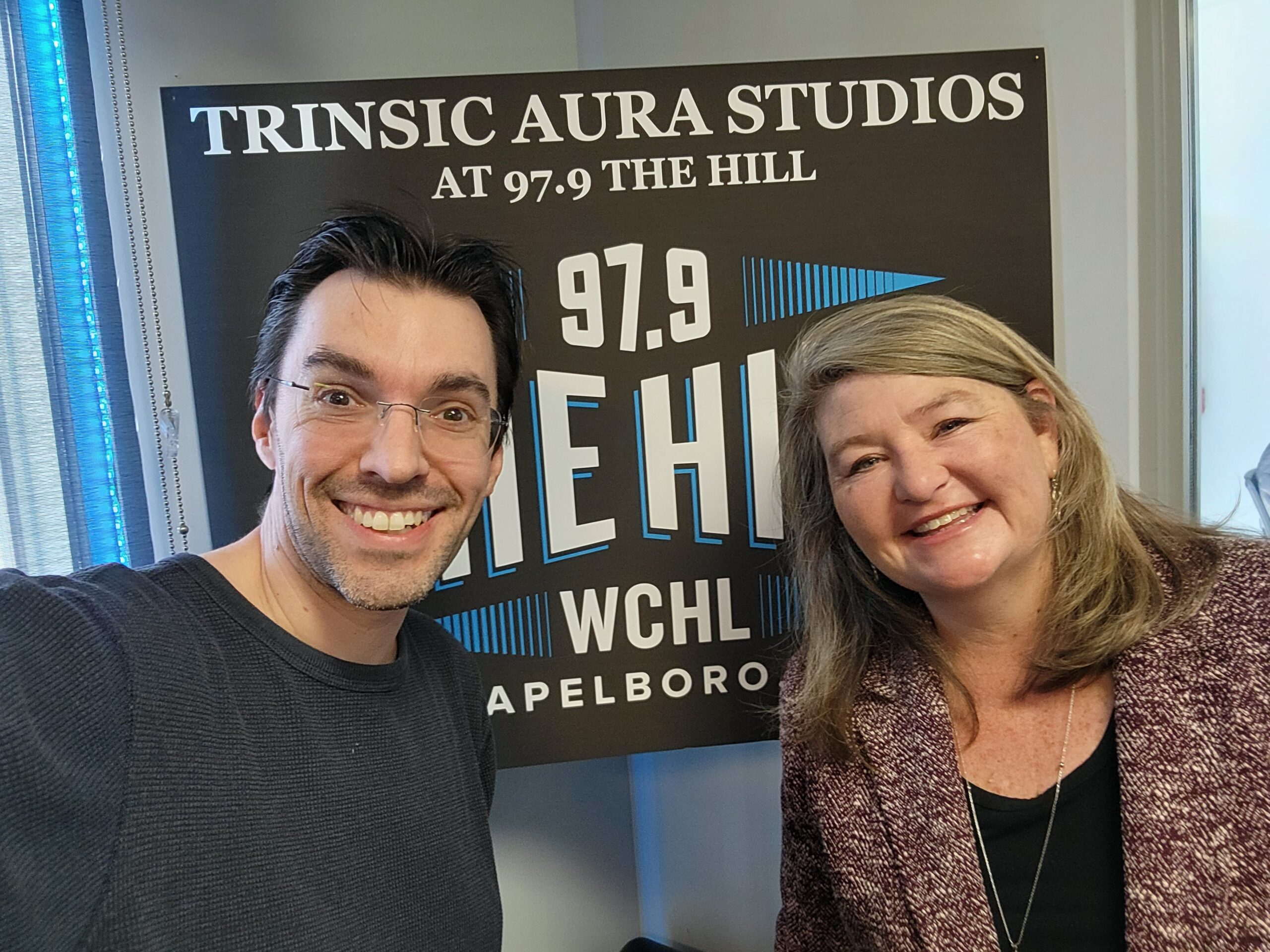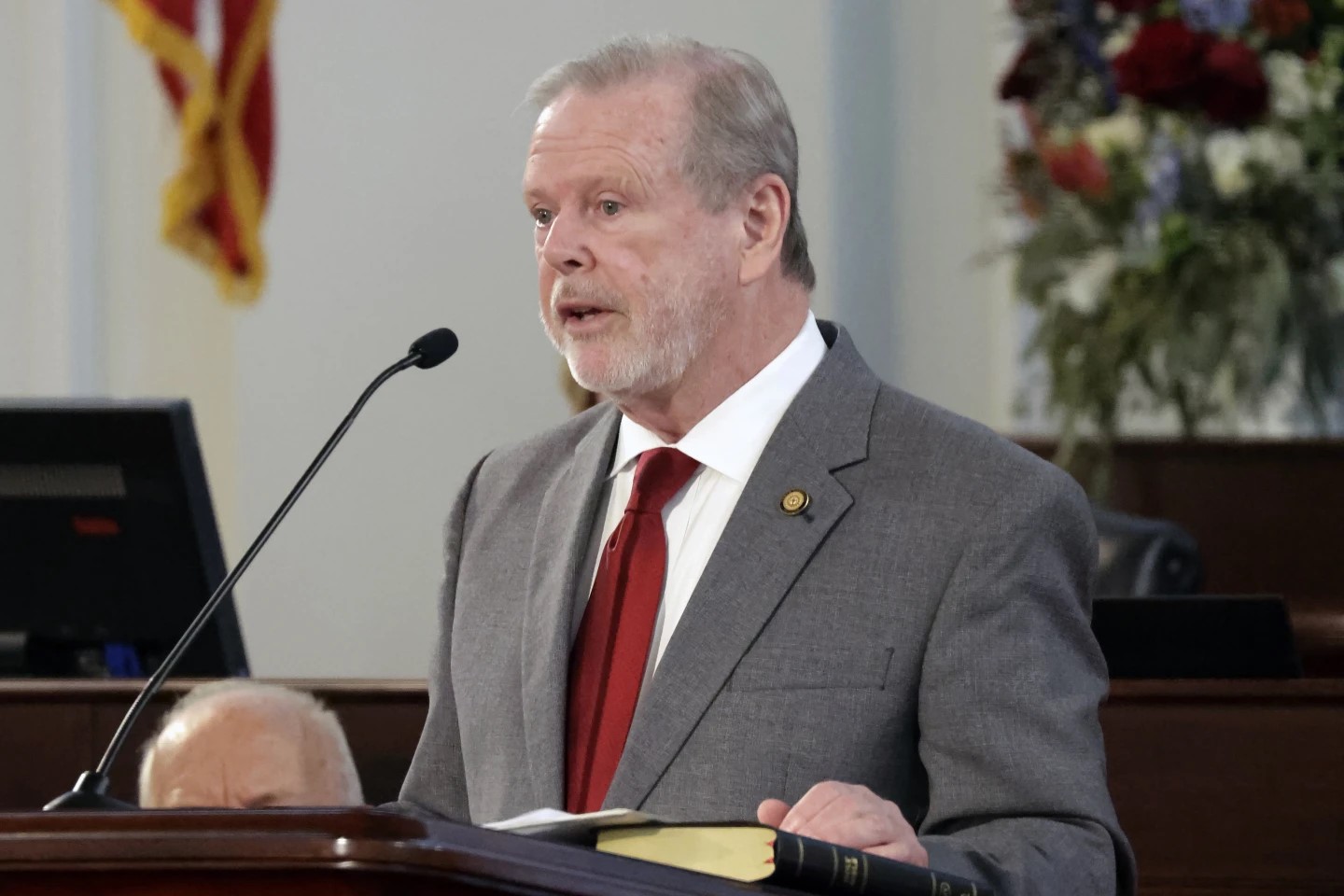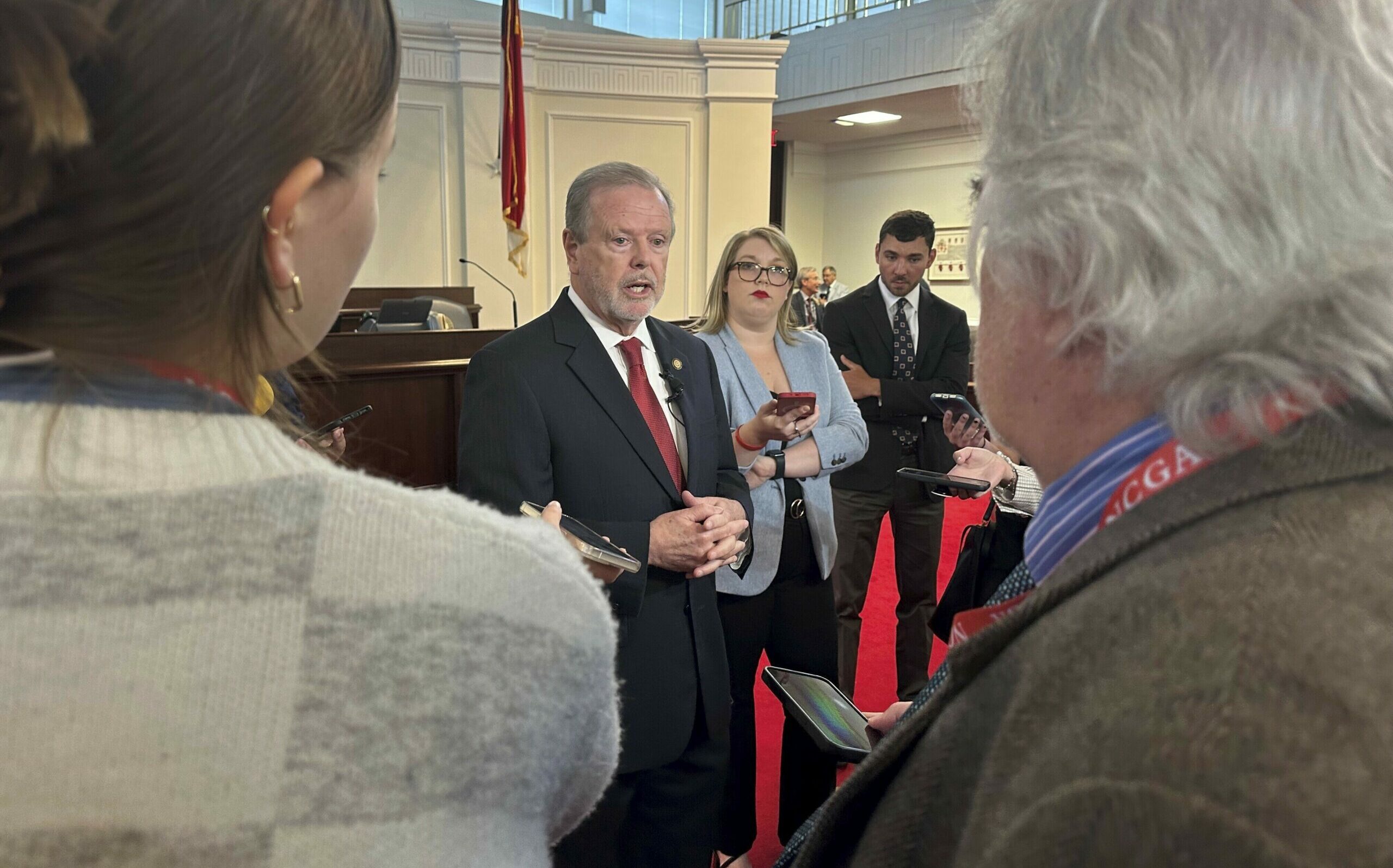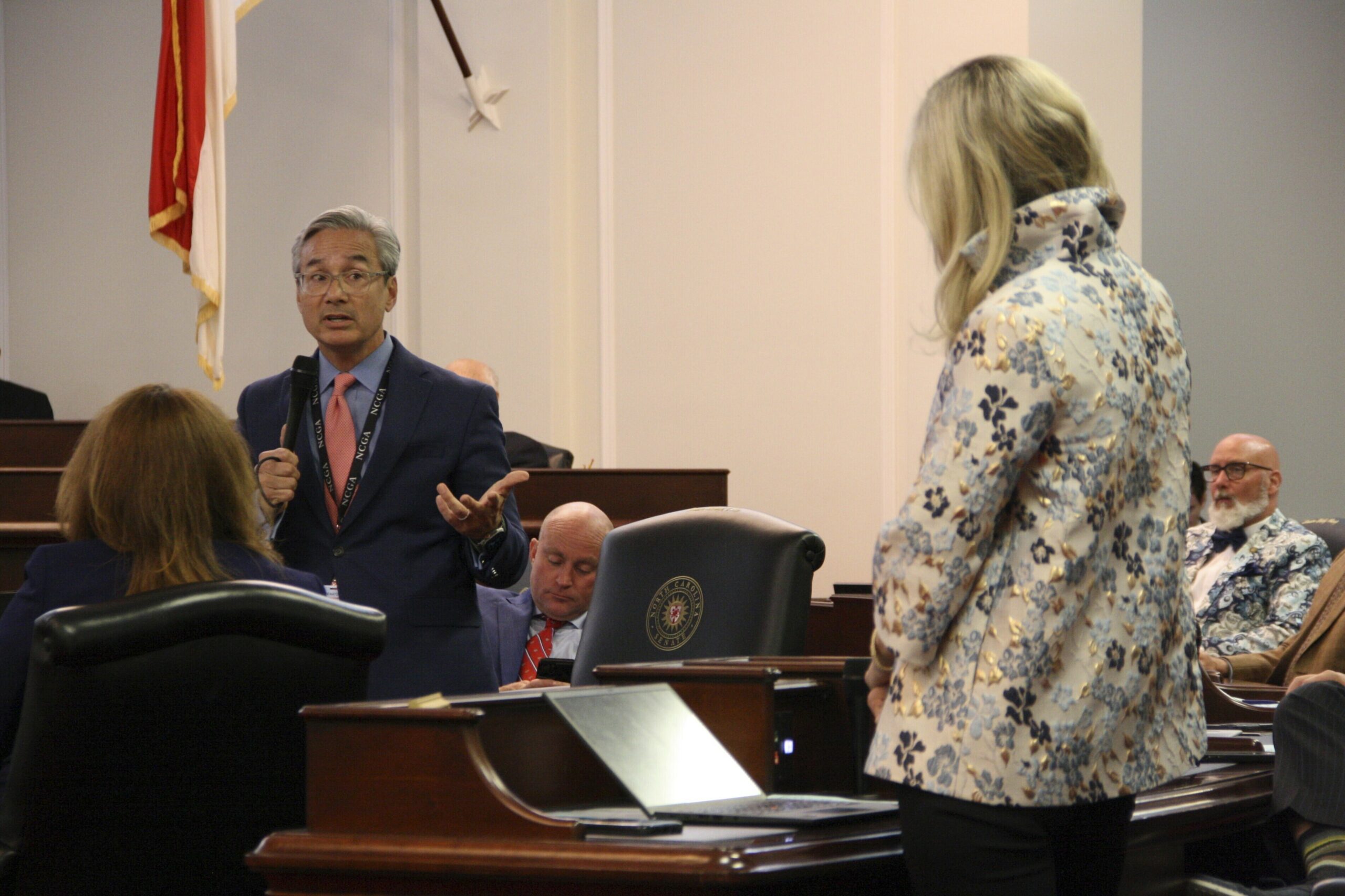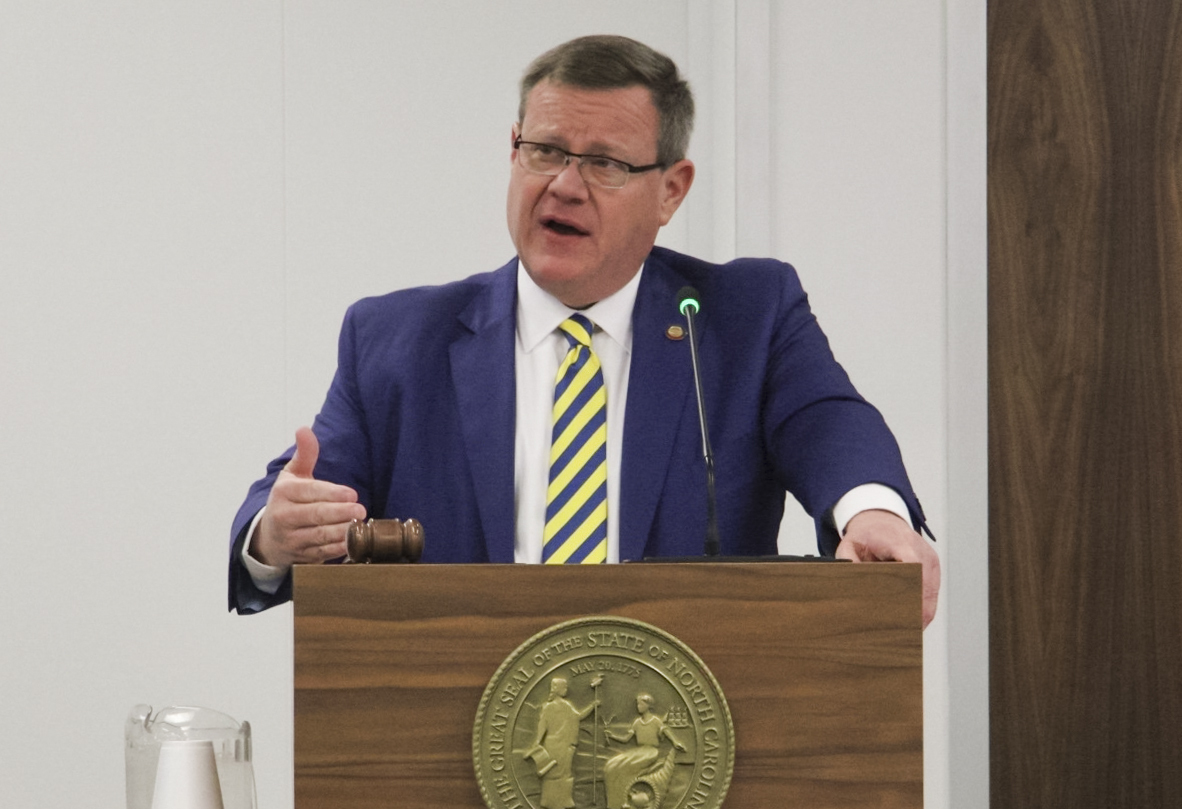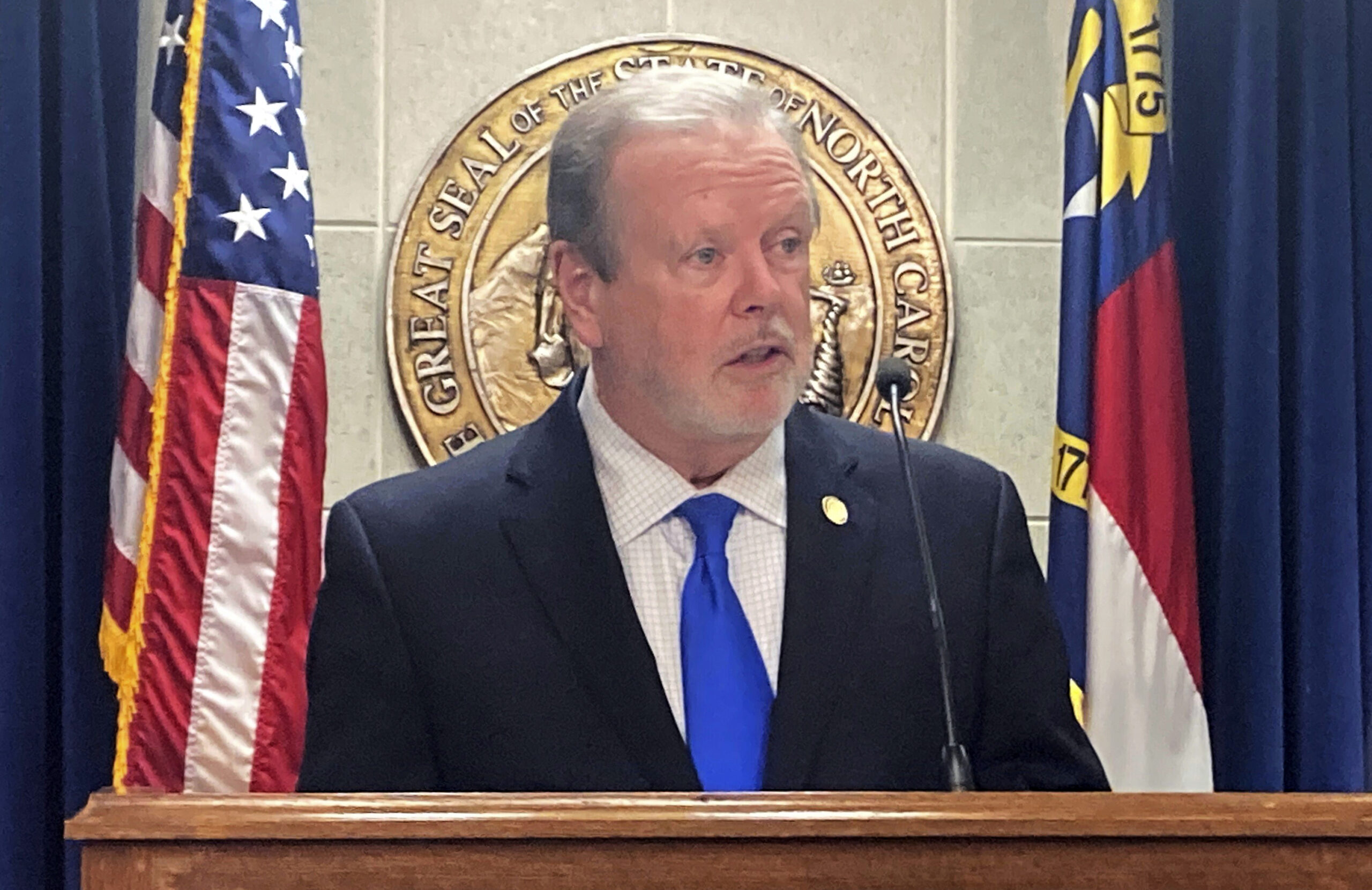As the North Carolina General Assembly gets its latest long session underway, school funding is once again expected to be a top issue for the legislature. The Public School Forum of North Carolina recently shared its top five priorities the organization has for lawmakers to address — ranging from teacher retention to mental health services.
President and Executive Director of the Public School Forum Mary Ann Wolf recently spoke with 97.9 The Hill’s Aaron Keck about the priorities and storylines around North Carolina’s schools. The following is a transcript of the conversation, lightly edited for clarity.
Aaron Keck: So first of all, before we get into the five points… [from] your general overview, what’s the state of schools as we head into 2023?
Mary Ann Wolf: Well, I’m always reminded just how important our schools are in our communities. You’ve heard me say before: they truly are the hub and bring together so many important aspects of what our kids and families needs, but also what our state and our economy needs.
When we were preparing for the top issues this year, one thing that really stood out to us is that North Carolina is ranked number one in business. And I think that’s a really important point. We’re attracting big business, we’re attracting a lot of people coming in, but there’s another number that’s pretty startling. We’re actually ranked 48th in the country in terms of per pupil expenditures when you adjust for regional cost differences, and we’re ranked number 50th in terms of funding effort. This is a very big deal because to have the workforce we need, our schools are critical to that, to make sure we’re able to prepare those in our state to be ready for those jobs. Our schools are critical for that. We believe this is a really important point: they need to go hand in hand. How do we make sure we are investing in our schools as a state? I don’t think 48th is good enough for anyone in North Carolina and how do we [address it] so we’re able to continue thriving in our economy as well.
Keck: So, you list five top issues. Two of them have to do with attracting good teachers. One of them is growing and diversifying the teacher pipelines of bringing in new teachers. I know that pipeline has been drying up in recent years. And [the second is] then to ensure fair and competitive compensation for teachers already on the job.
Wolf: We do know that the teacher shortage is very real here in North Carolina. At the beginning of this school year, we had 3,600 vacancies and every one of those represents a classroom of many, many students. We also know that another 3,600 spots were filled by teachers that were not fully licensed. And I have many friends and colleagues who have their own children in classes that do not have a certified teacher even now a semester in. So, when we look at this, we have to think about why do we have the shortage. Why are we not recruiting teachers at the level that we need? One of the things we know is that over the past decade our enrollment in our educator prep programs, our colleges of education have gone down by over 40%. That is very, very significant. Even if we’ve turned the corner a little, we’re still much, much lower than a decade ago.
We also know, as a state, that we fall well below the national average — almost $11,000 below the national average when it comes to our average teacher pay. That is a lot of money. Our teachers can’t afford to live in the communities in which they serve. Many talk about this paycheck-to-paycheck [lifestyle] that they’re forced into. When you ask, “What should we do?” the beauty of it is: North Carolina has the resources. We had a significant surplus last year and we can do more. The Public School Forum recommends that we have a 24.5% raise. And while that is a big one, it is also not excessive. That just gets us to the national average and it also covers the teacher tax. So what [that is]: someone who comes out with the degree that they have, with the qualifications they have… if they went into another industry, they would make that much more. We want to recruit and encourage teachers into a very professional [teaching workforce. But we also want to make sure that we are fairly compensating them so they can afford childcare, afford to live, and really earn what they deserve given their skills and qualifications.
Keck: The teacher tax has been around for a long time. I know when I was in high school, I had a teacher who moonlighted at other jobs and we went to visit her at the Montgomery Wards where she was working in the electronics department after school. So, that’s been an issue for a long time too. And I mentioned that because I’m curious about that 40% drop in the number of people who are entering education schools. Because a lot of those issues that you raise are serious issues, but they’ve also been around for a long time. So what do you think is causing that 40% drop?
Wolf: In North Carolina in particular, that’s becoming a bigger and bigger drop. When we look at what teachers made a couple decades ago to now, it’s down 11.8% when you adjust for inflation. That is becoming harder and harder [to live on]. And I also think opportunities have continued to expand: new [job] fields have grown. Last week we asked the teachers in the room, “How many of you work a second or a third job?” And you cannot believe how many hands went up. I mean, I think every educator in the room. And so, I think it’s just becoming more significant. In our state, there are a lot of opportunities. But if we’re not funding our teachers — who are the number-one school-related factor that affects student outcomes — we’re not going to have the workforce we need. It all comes back to what our state needs as well as our students.
Keck: We’re talking about [the Public School Forum’s] list of five top priorities for lawmakers this year when it comes to the schools. One of them is addressing the root causes of mental health and school safety crises. What are the root causes?
Wolf: When surveying parents, we’re seeing that as the number one and two priorities for [them]. We know that [for] our students, the rates of suicide in North Carolina and major depressive episodes have increased significantly. We also know that there are many things that cause stress. One of the ones that we do call out this year is the fact that there is a lot of gun violence in our schools. In no way am I saying that’s the only thing related to mental health, but it is an important one. One number that was startling to me is that since Columbine, about 20 years ago, 236,000 students have been in a school where gun violence occurred. That [amount] just made me pause because that’s not [students’ experience being] they know about a school or a school in their district [where this happened.]
When we look at this, we have to say: what can we do differently than what we do right now? One of the things in North Carolina is we don’t have enough social workers, counselors, or psychologists in our schools. Our ratios fall well below the recommended amount. And I know our parents out there feel that. And I know our teachers do too, because the support is not there. Ultimately, that impacts the kids. So, we can more strongly provide those roles in every one of our schools.
The other thing that we’ve moved forward with is suggesting that there are some gun control [measures]. There are some rules about how we keep guns safe that are in homes, but also really looking at other things that we can do as a state and a nation to cut down on that. Because the lack of those controls and the lack of those safety features and not requiring more universal background checks… that all leads to our kids having to feel unsafe in schools and our teachers as well. We see all this as going together, so I’m hoping we’ll tackle this in many ways. These are a couple of the ways [to create change] we recommend this year.
Keck: I’m about to ask a loaded question. We’re talking about what lawmakers should do, but we can also talk about what they shouldn’t do. In talking about mental health in the schools among students, rates of mental health issues, rates of depression, rates of thinking about or or attempting suicide are much higher among LGBTQ students than the general population as a whole. We just went through Senate Bill 49 in the state senate, which is a larger education bill, but with provisions that specifically target LGBTQ kids. What are your thoughts on that?
Wolf: Well, I think it’s very related to addressing those root causes of mental health. Our schools do need to be a safe place for students to go and learn. When we think about “parents’ rights,” we believe that our parents should be able to know that they’re sending their kids to a school that is safe. We also believe that our students should be able to know that as well.
And so, I was struck this week in hearing teachers, social workers and others talk about this legislation by how much they focused on what students need — and how we respect that that is a place that our teachers have a professional code of ethics that they follow. That [involves] working with students and providing a space for academic, social and emotional growth. We are very concerned when some of the legislation could directly put students in danger — if there is a requirement that teachers notify their parents about something they know about the student which could lead to them being in danger in their homes. There’s a lot of rights that parents and students do have right now and absolutely should have. When we think about this, we know what our research says and we know what students need: they need to feel safe in their schools. That relationship with teachers is very important, and we hope that everyone listens up and thinks about research.
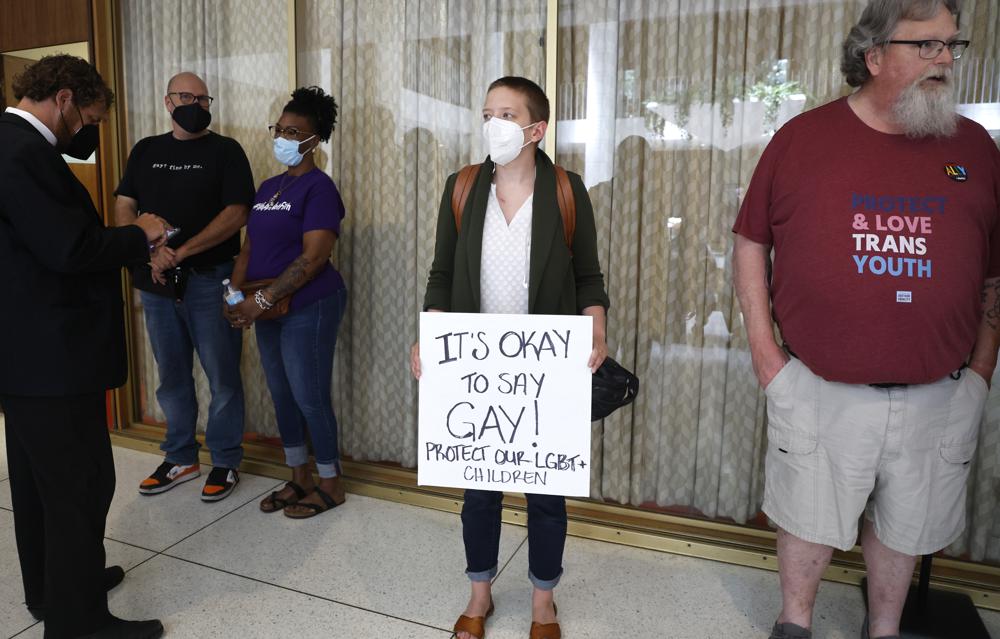
Alison Croop, of Raleigh, stands outside the North Carolina Senate Rules Committee room after the committee voted on HB755, the “Parents’ Bill of Rights,” at the Legislative Building in May 2022. After being vetoed by Gov. Roy Cooper, similar legislation was passed in the Senate earlier this month — once again aiming to put boundaries on discussions of sexual orientation and gender identity in the classroom. (Ethan Hyman/The News & Observer via AP)
Keck: Back to what we want legislators to do. One of the top priorities, and I think this has been one of the top priorities for 30 years now, is to fully fund the Leandro plan, right?
Wolf: Absolutely. In the fall, the Supreme Court did rule that the state should invest more money into schools… that we’re not meeting what’s required by our constitution for a sound, basic education. There are even dollar amounts given of how much more we should give [to school systems]. We’ve heard that there is another [court] hearing coming up on March 10th, so we’re of course watching out. The thing that I keep coming back to is [this]: if we want to be the best state and we want to attract people here, we need strong and thriving schools. None of this is just about money, Aaron — none of it. It’s all about what we invest in. And every single child deserves a highly qualified teacher, principal, a place where they can be safe, support for social-emotional, and academic learning. That’s what that’s all about, and I hope that our state continues in court to adhere to what they ruled in the fall.
Keck: We’re talking about the five priorities that they’ve listed for lawmakers in 2023, we’ve covered four of them. The fifth one is the one that I’m most interested in because it seems to be the biggest and broadest. That is just to “prepare students for the world they live in.” And that’s a direct quote. What does that mean in practice?
Wolf: We know that when our students go out into the world, they need to have many different skills. They’re academic-related, but they’re also [related to] communication and empathy and ability to collaborate in all of those aspects. Part of that is very much social-emotional learning, which talks about self-regulation and management and how you interact in responsible decision-making. Our state had the [North Carolina] Board of Education pass the “Portrait of A Graduate,” which talks about what we want our graduates to be able to do and to know when they graduate. That is absolutely encompassed in that [priority].
When you hear conversations about what schools should and shouldn’t do, our job in K-12 education is to provide a sound basic education. And we see that as making sure that every child is ready for college, [their] career and also to engage in our democracy. So to do that, we need social-emotional learning. We need those opportunities for students to have hands-on learning and critical thinking. We also need to measure what we say we care about. Our current grading system, A through F, is based on a test in a day, right? We need to move to multiple measures that really show what we believe our kids can do. And it all goes back to where we started: if we want to have a strong, thriving economy, we must in fact be preparing our students for that world. That will allow us then to continue to attract the businesses we do so that we all can live in communities where people have real opportunities.
Keck: So, what are some of the measures that we should be using to measure schools? Because you’re right about the grading system… the thing that fascinated me the most is — I think in Chatham County in particular, but other counties as well — you could 100 percent predict a school’s grade just by knowing what percentage of the students are on free and reduced lunch. That’s the defining factor. So [if we are] moving away from that…what do we move to?
Wolf: Absolutely. Right now, it’s based on 80% proficiency on that one test and 20% growth. There could be students that grow [academically] two full years in one year, but not quite make it to that proficiency. That is not deemed as positively, right? Because it’s 80% proficiency. One thing we have been advocating for is a much stronger balance between the growth that students show and the proficiency in which they obtain [it]. We’re always aiming for that proficiency of course, but growth should be recognized if our schools and our teachers are able to do that.
We also think that we need to be thinking about equity and access to opportunities. What opportunities are our schools able to provide and how do our students access those opportunities? And are we doing that in a way that every student has that chance [to succeed]? And the last thing — and this could be a much longer conversation another day — when you think about how important critical thinking and problem solving is, how are we making sure that’s happening in our schools? That is a more complex measure, but it is in fact something we can work on. And I would also add, we want to make sure the culture in our school is supportive of our students and our teachers, because that all works together too. That’s another avenue that we could consider when we look at this.
Keck: As we wrap up, one more question… I want to go all the way back to one of the first things you said, which is we’re the number one business state in the U.S. We’re also 48th in teacher spending, and we’re towards the bottom in so many metrics. So often we say that the businesses are coming because of the schools and there’s such a correlation there — but there is that big gap between being number one here and being number 50 there. Is there a correlation or are we hitting an inflection point? How should we interpret that?
Wolf: I think we’re at a very critical point. North Carolina has a lot of positive aspects and we know that. We are one of the lowest states, as an example, in corporate income tax — but we’re going so low now that I don’t think that’s making the difference anymore. We’re already in the bottom ten and we’re headed towards 0% corporate income tax. I think a lot of businesses are coming here anyway because [the state] has always been very business-friendly and we certainly encourage that. We want be in a competitive state. The piece I think is going to catch up to us is this lack of investment over many years. We’re starting to see that in very real time: not having the teachers that we need, seeing teachers stepping away and leaving with compensation. And that will impact our students. I know community colleges and higher education and early childhood will also have comments to make about this, because it’s the entire [education landscape] that we’re talking about here. So: I think we need to step up and do what our schools and our families deserve. Our businesses are going to want their employees to come here, to want to come here, to be in our schools. And right now, we are at a point where we have to think differently and make sure that we’re meeting the needs of every student.
The full conversation with Mary Ann Wolf can be listened to here.
Chapelboro.com does not charge subscription fees, and you can directly support our efforts in local journalism here. Want more of what you see on Chapelboro? Let us bring free local news and community information to you by signing up for our biweekly newsletter.

